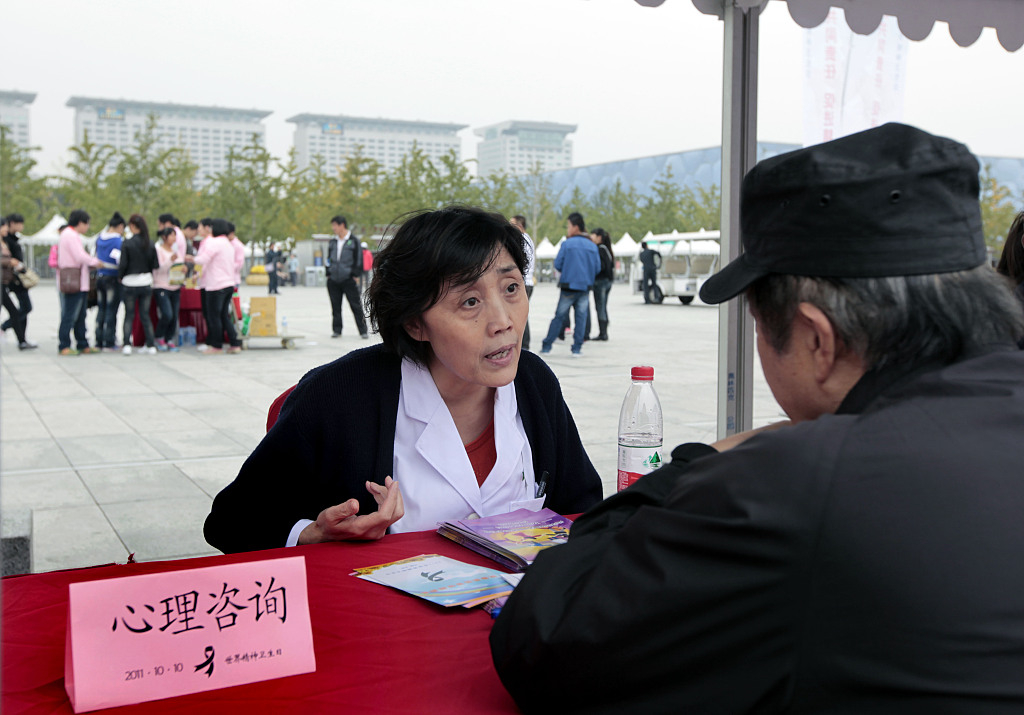
Dongguan Mental Health Center in south China's Guangdong Province. /VCG Photo
Dongguan Mental Health Center in south China's Guangdong Province. /VCG Photo
Editor's note: David Lee is a consultant and author based in Beijing who focuses on energy, health, international politics and international development. The article reflects the author's opinion and not necessarily the views of CGTN.
October 10 marks the 28th World Mental Health Day. It was first celebrated in 1992 as an initiative of the World Federation for Mental Health to bring attention to mental illness and its effects.This week, in China and many other parts of the world, a range of activities are taking place to raise awareness of mental health issues, with a focus on suicide, as World Health Organization statistics show that every 40 seconds, someone loses his or her life to suicide.
More than advocacy work on suicide prevention and general mental health topics, the 28th World Mental Health Day provides a good opportunity for stocktaking of the past 15 years of significant progress made on this public health front in the world's most populous country.
As the world's largest developing country, China has a heavy mental health burden. Statistics show over 100 million people in China have mental disorders, including some 16 million with severe mental illnesses. Also, schizophrenia patients account for nearly 1 percent of the Chinese population. Research has shown that China alone accounts for 15 percent of the global mental disorder burden. The developing countries of China and India have under over a third of the global burden, which is larger than all developed Western countries combined.
In 2004, China launched Project 686, where central government funding would subsidize local efforts in treating and managing severe mental illness. To many, the initiative marks the beginning of a large, ongoing process to modernize China's mental health intervention.

A psychologist answers questions from a resident in Beijing, China on October 10, 2019. /VCG Photo.
A psychologist answers questions from a resident in Beijing, China on October 10, 2019. /VCG Photo.
Subsequent steps followed Project 686. In 2013, the Mental Health Law of the People's Republic of China went into effect. In 2015, China launched the National Mental Health Work Plan (2015-2020). Ensuring people's mental health has also been recognized as part of the overall national health strategy. The plan also ensures that poor people with severe mental disorders get medical assistance and treatment, as China has recognized that mental health can also seriously affect people's jobs and living conditions.
Today, the mental health landscape in China is drastically different from 15 years ago. In 2004, the central government would have had to provide subsidies to local health service providers as an emergency response to address to cover serious mental illnesses due to the lack of infrastructure. In 2019, mental health has become a national health strategy, whereby 1.4 billion people will get access to knowledge, education, treatment, and other necessary support.
However, it should be noted that even though China has made impressive progress in the mental health field, there are still some issues that demand more effective solutions. For example, more collective efforts that involve not just medical resources but also media and public education should be made to combat discrimination against people with mental health issues. In the meantime, there should be more input in training mental health professionals, as there are still imbalances between the number of patients and the number of practitioners.
The "China contribution" should be of particular interest to the global public health community because China has demonstrated not only its strength in implementing large-scale practical interventions that benefit large populations, it has also showcased efficacy at a truly national level to deal with social issues that affect health, particularly mental health.
Take China's robust approach to drug abuse, for example. China now implements one of the world's strictest national opioid management systems. Swift action was taken by national authorities, with close collaboration between health and enforcement agencies, to put in place the effective management system in a surprisingly short time frame. Such efficacy and many other similar examples should provide inspiration and key lessons to international colleagues.
(If you want to contribute and have specific expertise, please contact us at opinions@cgtn.com)